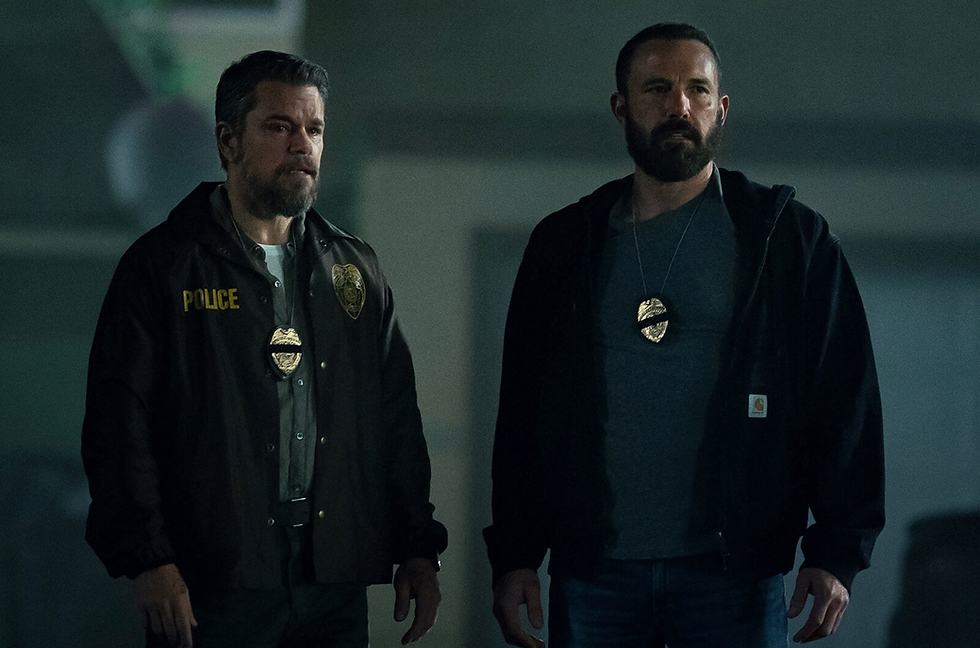FRANKENSTEIN (2025) Review
- Gerald Morris

- Nov 8, 2025
- 4 min read

After three decades of waiting, Guillermo del Toro finally brings Frankenstein to life — a lavish and emotionally charged retelling that’s as personal as it is haunting. It’s a visual triumph, though not without a few imperfect stitches.
A DREAM RESURRECTED
There’s a certain poetry in seeing Guillermo del Toro finally make Frankenstein. Few filmmakers have spent as much of their careers humanizing monsters, and few stories are as foundational to that obsession. According to del Toro himself, this project has lingered in his imagination for over thirty years. Now, in 2025, that long-nurtured vision has taken shape, and it feels as though both the filmmaker and the material have finally found each other.
Rather than simply revisiting Mary Shelley’s 1818 novel, del Toro transforms it into something unmistakably his own. The result isn’t just another adaptation of a gothic classic — it’s a reflection of his lifelong dialogue with the idea of creation itself, and the pain that inevitably follows it.
VISUALS & CRAFT
On a purely technical level, Frankenstein is one of the most visually striking films of the year. Del Toro and his creative team build a world that’s both ornate and decaying, as if beauty itself were fighting against entropy. The production design, costuming, and cinematography work in perfect harmony, crafting a visual language that feels painterly in its composition and operatic in its scope.
While Robert Eggers cloaked Nosferatu in shadow and silence last year, del Toro goes the opposite route — flooding his frames with color and vibrancy. It’s a reminder that gothic horror doesn’t need to live in grayscale to evoke dread. Here, the horror comes from how vividly alive everything feels (I loved Nosferatu, by the way).
Not everything is seamless. Some of the computer-generated effects — particularly in the creature’s more violent bursts or during the chaos of Victor’s cadaver expiriments — stand out against the otherwise tactile world. These moments don’t ruin the spell, but they do briefly pull the viewer out of an otherwise masterful atmosphere. Still, the overall design is so rich, so meticulously considered, that any flaws feel more like the quirks of a handmade creation than true defects.
THE STORYTELLING
Del Toro uses Shelley’s text as a foundation, but never a cage. He honors the spirit of the original — the hubris of man, the ache of abandonment, the agony of existence — while weaving in new emotional textures that give the material renewed urgency. The story isn’t about how closely it mirrors the novel, but how effectively it captures the soul of it.
That ambition does occasionally tip into excess. There are stretches where the film feels overwrought, even melodramatic, its emotional temperature cranked just a little too high. The sincerity is admirable, but the repetition of grief and moral anguish can verge on indulgent. In those moments, Frankenstein wobbles under the weight of its own operatic fervor. Yet even when it overreaches, it does so with conviction — and conviction is one of del Toro’s greatest tools.
THE PERFORMANCES

The performances mirror the film’s thematic duality — intellect versus instinct, creation versus consequence. Oscar Isaac plays Victor Frankenstein with controlled mania, equal parts charisma and corrosion. He’s not a mad scientist caricature, but a man consumed by the mirror he’s built for himself.
Jacob Elordi delivers what is the film’s defining performance as the Creature. His work is deeply felt — layered with vulnerability, resentment, and a strange, aching nobility. This is no mindless monster; it’s a being searching for worth in a world that refuses to grant it. Elordi manages to make every movement and gaze speak volumes about the nature of isolation and longing.
The supporting cast — including Mia Goth, Christoph Waltz, and Charles Dance — bring texture, though their roles are comparatively slight. The film belongs to its two central figures, locked in a cycle of creation and destruction that feels mythic in scale.
OSCARS CHANCES
From an awards standpoint, Frankenstein looks poised to become a major player across the technical categories. Production Design, Costumes, Makeup/Hairstyling, and Cinematography feel like near-certainties. The film also seems tailor-made for the new Casting category, and Alexandre Desplat’s sweeping score will likely be in strong contention as well.
Above the line, Best Picture and Director will depend on how receptive voters are to its tone and pacing — but both are in the conversation. And if there’s an acting nomination to be had, Jacob Elordi’s creature could very well be the one to carry it.
THE VERDICT
Frankenstein is not flawless, but then again, neither is the creature at its core. It’s grand, ambitious, and occasionally over indulgent — yet in that imperfection lies its humanity. Del Toro has crafted a film that’s less about fear and more about empathy, turning Shelley’s fable of hubris into an elegy for artists who dare to create something they can not control.
It’s a haunting, majestic work — and one that reminds us that even the most monstrous creations can hold a beating heart.
🍿 SCORE = 81 / 100
Frankenstein is playing in theaters nationwide (10/17) & streaming on Netflix (11/7)









Comments